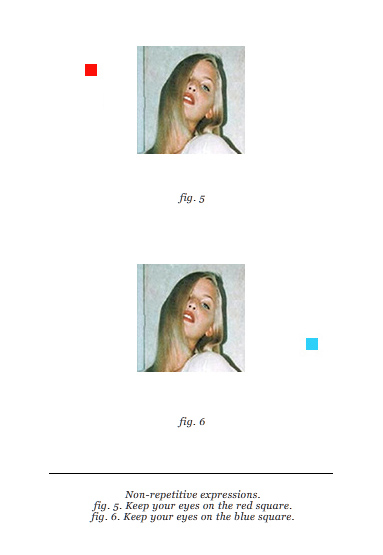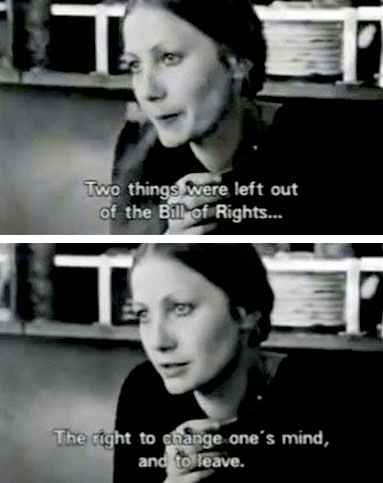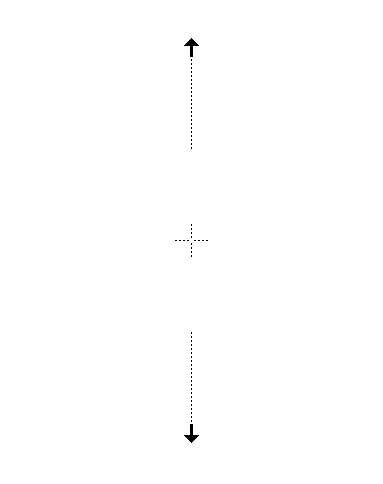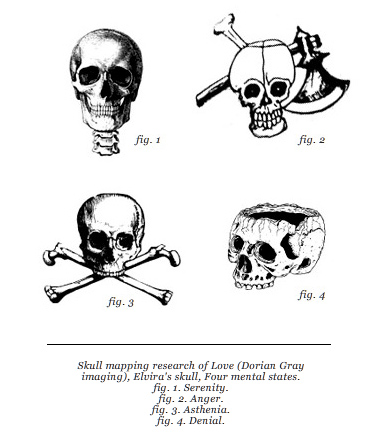Everything I am talking about is represented, one way or another, already in previous literature.
What I am talking about is why I was interested in S-75 [the texts, theories, activities].
I want to emphasize that what I really got out of this is a sense that nothing I was doing defended my interests very much. I was acting against my hopes. I couldn't distance myself from the story I believed was true.
We know that there is always a beginning. What I found is that ?????????, the instigator(s), if you will, ran several actions and produced several interpretations of these actions, and that they have been in this "business" for at least [6] years [in relative unawareness], as uncertain as it may sound. In fact they were acting in broad daylight. They were coordinating the operations. It was their function. It was the obvious that was denied, and for a time it slowed the recognition of the incontestable. I resisted and rebutted the obvious until the last minute. There are tasks impossible to accomplish without a prolegomenous misconstruction, volunteering errors, initial blindness.
I am trying to think like the people working at S-75 who had the big picture, who knew what was going on at S-75, who had all the information and could not misconstruct the causes and effects. Usually, they would say, "If you knew what I know about the situation, you would understand why I act as such." [not consented to] Or they1 would say, "I know it seems crazy and I can't explain it."

I had to [work] with ????????? nonetheless. When I reported that [s]he1 liked to take part in, how could I say, cruel scenarios, lingering, interrupted by silences, by no contrivance but brutal chaos, when I reported this to ?????????, s[he]2 said that if I did demonstrate a lack of 'fiber' to handle dealing with [S1], I wouldn't get another [chance]. So I proceeded to [work] with ????????? for the next 3 years [amor fati],


When the Special Research Group was constituted in October, 2009, we were instructed to govern our considerations in accordance with two principal criteria:
1) objectivity;
2) avoidance of subjectivity.
We believe it is no accident that we were charged to use a "contingency fact sheet" model for our study, and we owe a considerable debt to ????????? and her [friends] for [their] philosophical work in the objective examination of the concepts of "change" and "decision."
One previous "official" report is replete with references to the critical role of "active optimism" on ????????? developments, and goes on to submit, as evidence, that it "would be hard to imagine that we would not respond very positively to an agreed program to substitute a ????????? to change," etc.
Another line of argument frequently brandished is that ????????? would bring forth [redacted [bias]] comparatively little "disturbance" to the "change" itself [in the case of our study].
But it must be recalled that there is no such precedent in contingency studies. Much of the pertinency of the elaborate and carefully reasoned antecedent approaches of ?????????, for example, has been impaired by an enthusiasm to demonstrate that ????????? was not only possible, but even systematic [what was named the "routine" scenario].
Likewise, it should be self-evident that this [method] applies equally to the opposite prospect, but no one has, so far, taken more than a timorous glance over the intrigues of ????????? [Z1]. In reference to facing up to the possibility that ????????? was serving [her] own short-term recreation, some observers were afraid to consider [her] readiness and willingness to sustain [her] decision [or conclusion]. We claim no immunity from this type of bias, but we have made a continuous effort to deal with the problems of decision, conclusion, and change, without considering that a condition of such decision, conclusion, or change, was (per se) "felicitous" or "inappropriate."
It is significant, we believe, to note that the most dispassionate observers recognize that the stability of ????????? [her strategy and absence1] is the one obdurate fact that cannot be avoided, despite the decisional necessity considered [process]. It is equally critical to assay the consequences of a transition [change] to ????????? [cf. La Bruyère, Jean de], or to determine the achievability of any transition at all, and it is understood that these factors have been generally ignored in previous research [concerning affairs, dissolutions, etc] because they have been difficult, perhaps impossible, to measure with any degree of certitude that the estimations of their effects could be depended on. They are "incorporeal," when compared to those which can be computed, and cannot be verbalized, like law, logical sequences, feelings, ends [colloquially speaking].
The result, we believe, provides a context of realism? for the discussion of the issues relating to the possible transition from ????????? [italic] to ?????????, which up to now has been missing. This is not to say that we presume to have found the answers we were looking for [seeking]. Change doesn't speak. And it silences you. But we believe that our emphasis on its nature, scope, and persistence has made its uncertainty at least possible to begin to understand.
